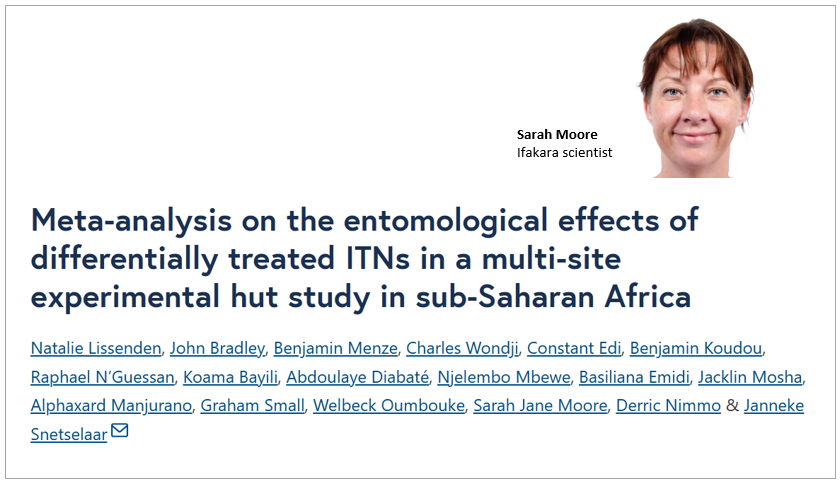
MALARIA CONTROL: Partially-treated mosquito nets are less effective, can’t offer full protection

A multi-country study in sub-Saharan Africa has confirmed that partially-treated mosquito nets with insecticide applied only on specific areas—such as the roof or sides—are significantly less effective at preventing malaria than fully-treated nets.
Testing a cost-cutting idea
The study, published on Malaria Journal earlier this year, aimed to determine whether reducing the amount of insecticide used on mosquito nets—by applying it only to selected parts of the net—could provide the same level of protection at a lower cost.
The findings showed that partially-treated nets failed to match the protective power of fully-treated insecticide-treated nets (ITNs). They were less effective at both killing mosquitoes and preventing them from feeding on human.
Field trials across four African countries
The research, conducted between 2020 and 2022, analyzed data from nine experimental hut trials across four countries in sub-Saharan Africa – Burkina Faso, Cameroon, Côte d’Ivoire, and Tanzania.
Six research institutions contributed to the trials including; Centre for Research in Infectious Diseases (CRID) in Cameroon, Centre Suisse de Recherches Scientifiques (CSRS) and Institut Pierre Richet (IPR) in Côte d’Ivoire, Institut de Recherche en Sciences de la Santé (IRSS) in Burkina Faso), Kilimanjaro Christian Medical University College (KCMUCo), and National Institute for Medical Research (NIMR) Mwanza in Tanzania.
Wide range of conditions, mosquito species tested
To reflect real-world conditions, the study was notable for its broad scope. Trials were conducted across seven diverse locations in East and West Africa, targeting multiple mosquito species—including Anopheles gambiae, An. coluzzii, An. arabiensis, and An. funestus. Researchers used experimental huts designed to match local architectural styles, with both human and cow hosts included.
Fully-treated nets consistently outperformed alternatives
Using a meta-analysis approach, researchers compared outcomes across net types, including roof-only and side-only treated designs. Across all settings tested, fully-treated nets consistently outperformed the partially-treated alternatives in providing better protection.
“This meta-analysis of nine different hut studies across six trial facilities, using several partially-treated net designs and net types, showed that partially-treated net strategies that restrict the insecticide treatment to specific panels of an ITN do not give equivalency or superiority in either mortality or blood-feeding inhibition to fully treated nets,” the study authors noted.
Ifakara scientist among key contributors
Among the key contributors to the study is Dr. Sarah Moore, a seasoned scientist from the Ifakara Health Institute in Tanzania. Dr. Moore was instrumental in the study’s design, data collection, and manuscript preparation, working in close collaboration with researchers from partner institutions in the UK, Cameroon, Côte d’Ivoire, Burkina Faso, and Tanzania.
A timely warning amid budget pressures
The study’s findings come at a crucial time as malaria control programs and health agencies seek cost-effective solutions amid funding challenges. While reducing insecticide use may seem like a cost-saving approach, the evidence suggests it could undermine malaria prevention efforts.
The researchers underscore the need to continue prioritizing fully-treated mosquito nets as a proven and effective tool to protect people from malaria.
Read the publication here.
